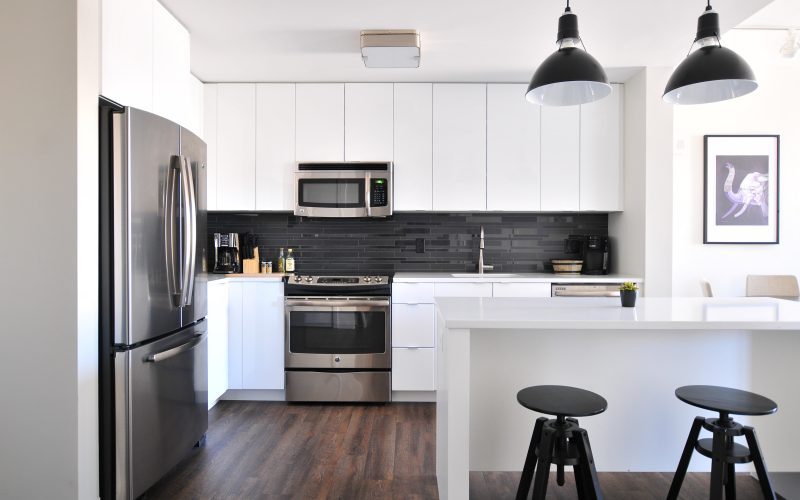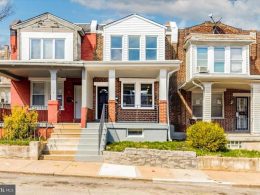As the world continues to grapple with the unprecedented COVID-19 crisis, it is no secret that almost every aspect of life has been affected. From healthcare to education and commerce, this pandemic has left a trail of destruction in its wake. The real estate market industry in the United States is not an exception as it has experienced significant changes since the outbreak of this virus. In this blog post, we explore how COVID-19 has impacted the US real estate market and what potential homebuyers, sellers, and investors should expect during these uncertain times. Let’s dive in!
The Impact of COVID-19 on the US Real Estate Market
It’s still too soon to know the full extent of the impact that COVID-19 will have on the US real estate market. However, we are already seeing some effects. For example, sales of newly built homes fell sharply in March 2020, while sales of existing homes continued to rise (although at a slower pace than before the pandemic).
The drop in new home sales is likely due to builders’ concerns about the economic slowdown and its effect on demand for new homes. Existing home sales, on the other hand, may be bolstered by buyers taking advantage of low mortgage rates. Additionally, social distancing measures have made it more difficult for potential buyers to view properties in person, which could lead to more people opting to purchase already-built homes rather than going through the construction process.
Of course, the pandemic has also had an effect on prices. In many markets across the country, we are seeing a decrease in both list prices and sale prices as sellers adjust their expectations in light of current conditions. In addition, the rise in unemployment is likely to put downward pressure on prices as more people struggle to afford a home.
It remains to be seen how long these trends will continue or how severe they will become. However, it’s clear that COVID-19 has already had an impact on the US real estate market and that this impact is likely to continue in the months ahead.
How the Pandemic Has Changed the Way We Buy and Sell Homes
The pandemic has changed the way we buy and sell homes in a number of ways. First, more people are now working from home, which means they have less need for a traditional office space. As a result, there has been an increase in the number of people selling their homes and moving to rural areas or smaller towns where they can get more space for their money.
Second, the pandemic has made people more cautious about buying homes. Many people are now opting to rent rather than buy, or are waiting to see how the market recovers before making a purchase. As a result, prices for both new and existing homes have declined in many markets across the country.
Third, the pandemic has forced many people to reassess their priorities. For some, this has meant realizing that they don’t need as much space as they thought they did and downsizing to a smaller home. For others, it has meant wanting to be closer to family or friends and moving to be near them.
Fourth, the pandemic has led to an increase in demand for certain types of properties. Homes with large yards or private pools are now in high demand as people look for ways to safely entertain themselves and their families while staying at home. Similarly, properties with easy access to nature or hiking trails have become more popular as people seek out ways to get fresh air and exercise while avoiding crowded places.
Finally, the pandemic has created challenges for both buyers and sellers
The New Normal: What the Real Estate Market Will Look Like Post-Pandemic
It’s no secret that the COVID-19 pandemic has had a profound impact on just about every aspect of our lives. And the real estate market is no exception. In fact, the pandemic has changed the real estate market in a number of ways, some of which may be permanent. Here’s a look at what the “new normal” for the real estate market may look like post-pandemic:
1. More remote working and schooling: One of the most significant changes we’ve seen during the pandemic is the massive shift to remote work and distance learning. And it’s likely that this trend will continue even after the pandemic ends. That means there will be less need for traditional office space and more demand for homes with dedicated office space and good internet connectivity.
2. More suburban and rural living: Another trend that’s been accelerated by the pandemic is the move away from densely populated urban areas to more suburban and rural locations. This is due to a combination of factors, including a desire for more space, increased concerns about safety and security, and a desire to be closer to nature. As a result, we expect to see continued strong demand for homes in suburban and rural areas in the post-pandemic era.
3. Increased interest in health and wellness features: During the pandemic, we’ve seen a renewed focus on health and wellbeing. This includes everything from healthy home design features like plenty of natural light and fresh air
Conclusion
The COVID-19 pandemic has drastically changed the US real estate market. Both buyers and sellers have had to make significant adjustments, while those in the rental market are facing unprecedented levels of uncertainty. Despite all of these changes, there is still an abundance of opportunities for investors and potential homebuyers alike—it just requires a bit more diligence on their part to find them. Overall, it’s clear that this situation won’t last forever and with careful planning, anyone can make sure they are taking advantage of any potential benefits or protecting themselves from any risks associated with the current environment.












